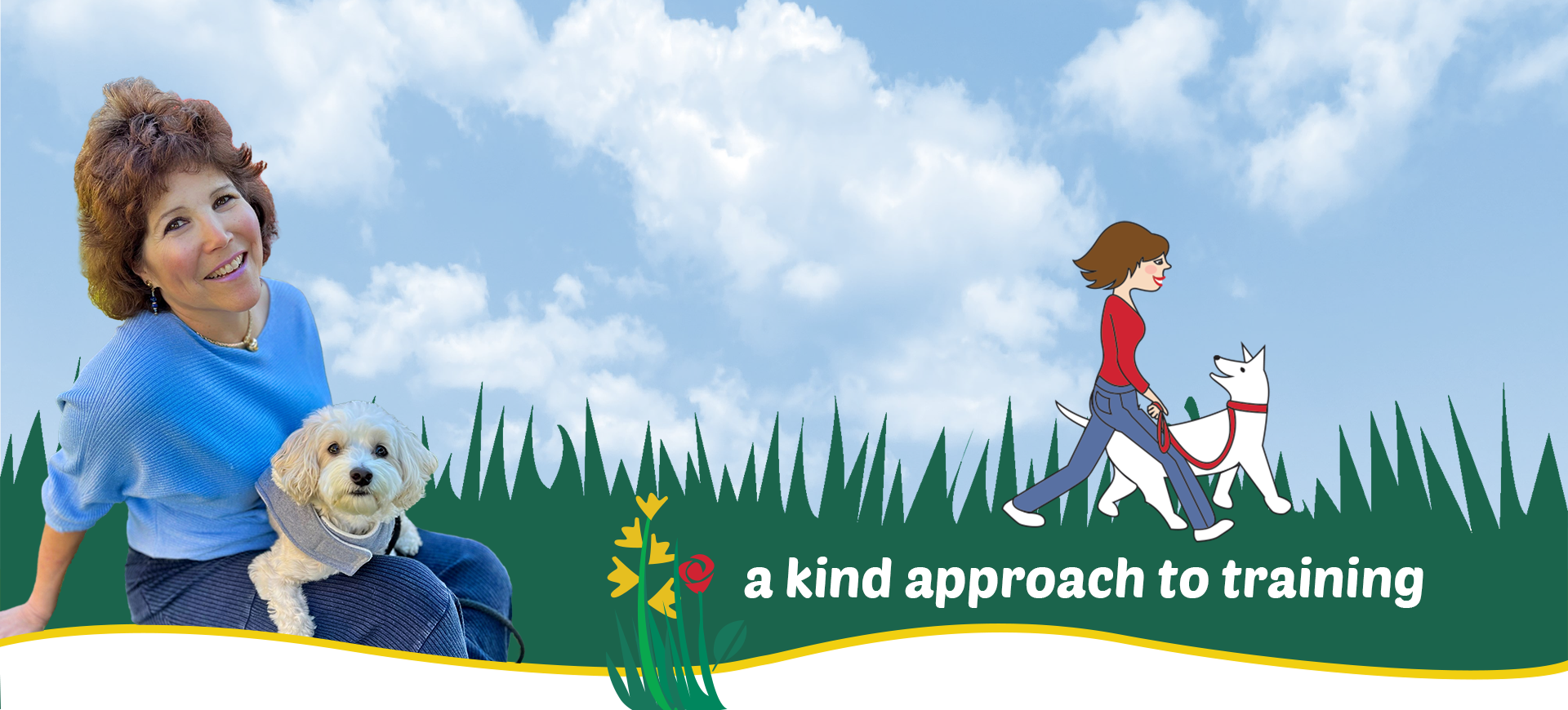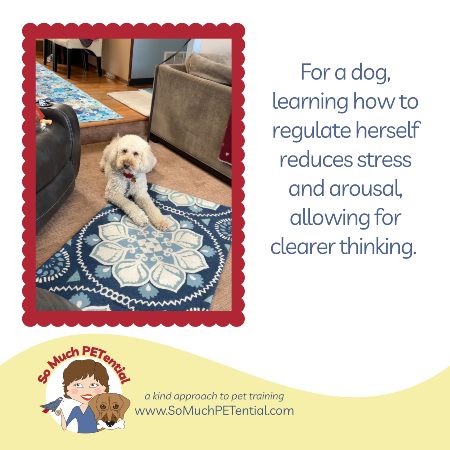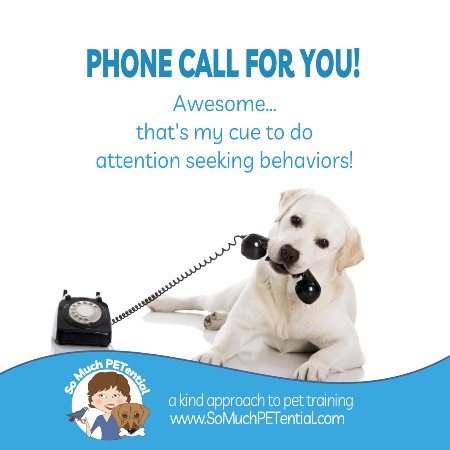A client the other day wanted to train his dog to come to him reliably when called, as his dog had been ignoring his pleas to come with greater and greater frequency.
Whenever that happens, it is important to remember that recall (your dog coming to you when called) is a behavior, and, just like any behavior, its consequences are what strengthens or weakens its frequency and intensity. When choice is involved, dogs – and other animals – will choose to do what gets them the most valued outcome.
 Think about how that relates to training your dog to recall. Here are a couple different examples.
Think about how that relates to training your dog to recall. Here are a couple different examples.
In the past, when your dog was completely engaged in playing with some branches on the ground or watching a squirrel that was in a tree, you called your dog to come only to bring her inside and away from that activity. Once inside, the fun ends. You may have even locked her in a crate to leave for the morning. You were actually punishing your dog’s decision to come because you were removing her from something highly valuable to her. As a double punisher, you were even leaving her all alone to be bored.
In the past, you have taken your dog to environments that gave your dog a lot of opportunities to sniff, chase, get into things, play (this could even be your backyard), and you relentlessly kept calling your dog to come without success. The tone in your voice began to change as your frustration set in. Finally, when your dog did come to you, you scolded him or you attached the leash and proceeded to walk to your car to leave. Again, you punished your dog for coming to you. If your dog is completely tuning you out, that is a sign that you are practicing in an environment with too many competing reinforcers, you have made the criteria for the behavior of recall too much (maybe too great a distance or too great of distractions) or you have not spent enough time teaching your dog that coming to you when called will result in something really awesome.
In the past, when your dog has done anything except come to you when called, then you pulled out the tug toy or began a game of chase. When you do that, think about what you are unintentially reinforcing. You are making it more valuable for your dog to do anything else because that results in a bigger payoff for your pet. Why then would your dog choose to come if there is a much more valued consequence to ignoring the first times you call her?
There are SO many reasons why your dog does not come when called. What those reasons have in common is the ineffective use of strategic strong, consistent reinforcement on your part to teach your dog that coming to you when called is always the best choice for your dog.
Teaching Recall
So how do you get your dog to want to come running to you when you call her? First remember that recall is a behavior that, like all other behaviors, needs to be taught and practiced with high value positive reinforcement.
Do your homework before the lesson. Just as with teaching anything, begin by knowing what your pet values so that you can use that information to make coming to super valuable. Choose a new, novel word to use as your recall cue that you can teach with reliability. And set up your first classroom environment so that there are minimal other distractions (it could be your kitchen or bathroom).
Even before beginning to teach your dog the meaning of your recall cue, you can practice games to build value for your dog looking at you or coming to you. I use a number of different recall games with my clients.
Then teach your dog that, *when* she hears your recall cue, that something of value is going to happen. That something of value can be treats or activities. You can increase the value of the treats by doing fun things with them like having your dog chase you to get them or find the treats on the ground.
Add to those games each day. Be consistent in that your dog comes to learn that the recall word means *party is about to happen* but what that party is can vary. And when your dog doesn’t know what party is going to happen, it makes it that much more exciting.
Then practice with increasing difficulty, changing the environment, adding more distance, adding more distractions…moving forward as your dog can continue to succeed.
However, make sure that you never use that recall word when calling your dog to come for some sort of aversive consequence (from your dog’s perspective).
If you practice short a few minutes of recall games several times a day, you will see a lot more of your dog choosing to come when you call.
I’d love to help you with them. Please reach out if you’d like to learn how to teach your dog and have fun doing it.







